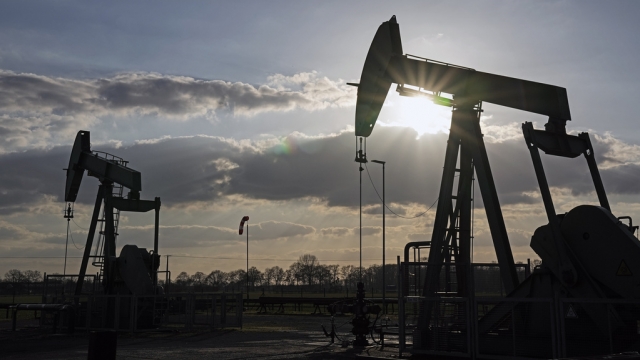We rely on crude oil and the chemicals we produce with it to power our vehicles, homes, and businesses.
Products made from oil include plastics, asphalt, rubber, and thousands of chemicals. But the top ten oil-producing nations include global hot spots like Russia, the Middle East, and Iran.
So it's not surprising that conflict overseas often influences energy markets.
Yet it's challenging to predict how a particular conflict, like the Israel-Hamas war, could affect fuel prices.
But here are five facts that help explain the links between geopolitical strife, the oil markets, and the prices you pay at the pump.
Fact 1: Prices rely on supply and demand
As supply dips below demand, prices rise. During the 1973 Yom Kippur war between Israel and the Arab states, Arab oil-producing countries established an embargo, cutting off their oil from world markets.
"Oil supplies were restricted almost overnight," says Jeff Barron of the Energy Information Administration. "That led to the inability of crude oil purchasers, such as refiners, to be able to access their crude supplies, to be able to produce the fuels needed, you know, for everyday people."
In 1973, oil and gasoline prices skyrocketed. "When the embargo was lifted, the price of oil had skyrocketed from $3 to $12 a barrel," says Barron. Prices got even higher after the revolution in Iran, a major oil producer.
"A 1% decline in supply can oftentimes have a 10, 15, or 20% increase in price," says Barron. "The reason is because crude oil, gasoline, diesel fuel, jet fuel don't have readily available alternatives."
Which leads to fact number two.
Fact 2: Uncertainty drives up demand
The oil pipeline starts at the well, then goes to refiners, which make the gasoline that's available at the pump. Barron says it's the refiners that largely drive demand for oil.
"If global refiners think that some type of supply disruption is going to occur or could be long-lasting, generally speaking, they are going to bid up the price to be able to access those barrels," he says.
More demand, higher prices. For example, when Iraq invaded Kuwait in 1991, oil and gasoline prices spiked.
Fact 3: U.S. is the world's biggest oil producer
In the 1970s, America was the biggest importer of oil.
Today, the U.S. is the world's #1 oil producer. Todd Staples, president of the Texas Oil and Gas Association, says America's steady supply of crude stabilizes world markets.
Staples says that "in 2019, a Saudi Arabian oil refinery complex was attacked by missiles that originated from Yemen."
Oil prices shot up and then came back down.
"Because America was the leader at that time and we were showing even more growth, it didn't have the impact that most market participants thought that it might have," says Staples."We've seen tankers stuck in the Suez Canal, and because of American strength and American production. We've seen the impact muted there as well."
Fact 4: Oil storage can smooth out price shocks
Billions of barrels of oil sit in inventories across the world. But there's a debate over how robust global oil stocks are right now.
"Crude oil inventories and private industry supplies are near their five-year low," says Staples. "The Strategic Petroleum Reserve is down 43% since October of 2021. And so not only do you have tensions globally that are impacting prices, but you have supply levels that are at historically lower levels."
On the other hand, says Barron, OPEC is ready to ramp up production if need be.
"If they have high levels of spare capacity, one would think that a price shock in the event of a geopolitical supply disruption would be less than if the supply of spare capacity were low. And right now, spare capacity is quite high," says Barron. "It is about maybe 50% or so higher than the ten-year average."
Which means OPEC could theoretically meet rising demand if refiners start to buy more fuel in a panic.
So, if oil prices are driven up by conflict overseas, how could that affect your pocketbook?
Fact 5: Rising oil market doesn't mean higher gas prices
The history of oil prices shows how conflicts can drive up the price of crude. Experts say the cost of oil comprises the majority of the price of a gallon of gasoline, though other factors like marketing and refining matter too.
So oil and gasoline prices tend to rise and fall together, but not always. Recently, while oil prices have been rising, gasoline prices have been falling. That's in part because winter gasoline is cheaper than summer fuel.
So while the war in the Middle East is causing pain and hardship there, its impact at the pump here is probably minimal ... for now.


